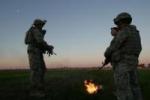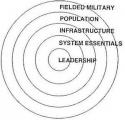With President Obama declaring a "systemic failure" of our security
system in the wake of the attempted Christmas bombing of a Detroit-
bound airliner, familiar arguments about what can and should be done
to reduce America's vulnerabilities are again filling the airwaves,
editorial pages and blogosphere. Several of these arguments are based
on assumptions that guided the U.S. response to the Sept. 11, 2001,
attacks -- and unfortunately, they are as unfounded now as they were
then. The biggest whopper of all? The paternalistic assertion that the
government can keep us all safe without our help.
1. Terrorism is the gravest threat facing the American people.
Americans are at far greater risk of being killed in accidents or by
viruses than by acts of terrorism. In 2008, more than 37,300 Americans
perished on the nation's highways, according to government data. Even
before H1N1, a similar number of people died each year from the
seasonal flu. Terrorism is a real and potentially consequential
danger. But the greatest threat isn't posed by the direct harm
terrorists could inflict; it comes from what we do to ourselves when
we are spooked. It is how we react -- or more precisely, how we
overreact -- to the threat of terrorism that makes it an appealing
tool for our adversaries. By grounding commercial aviation and
effectively closing our borders after the 2001 attacks, Washington
accomplished something no foreign state could have hoped to achieve: a
blockade on the economy of the world's sole superpower. While we
cannot expect to be completely successful at intercepting terrorist
attacks, we must get a better handle on how we respond when they happen.
2. When it comes to preventing terrorism, the only real defense is a
good offense.
The cornerstone of the Bush administration's approach to dealing with
the terrorist threat was to take the battle to the enemy. But offense
has its limits. We still aren't generating sufficiently accurate and
timely tactical intelligence to adequately support U.S.
counterterrorism efforts overseas. And going after terrorists abroad
hardly means they won't manage to strike us at home. Just days before
the attempted bombing of Northwest Airlines Flight 253, the United
States collaborated with the Yemeni government on raids against al-
Qaeda militants there. The group known as al-Qaeda of the Arabian
Peninsula is now claiming responsibility for having equipped and
trained Umar Farouk Abdulmutallab, who allegedly tried to blow up the
flight. The group is also leveraging the raids to recruit militants
and mount protests against Yemen's already fragile central government.
At the same time, an emphasis on offense has often come at the expense
of investing in effective defensive measures, such as maintaining
quality watch lists, sharing information about threats, safeguarding
such critical assets as the nation's food and energy supplies, and
preparing for large-scale emergencies. After authorities said
Abdulmutallab had hidden explosives in his underwear, airline
screeners held up flights to do stepped-up passenger pat-downs at
boarding gates -- pat-downs that inevitably avoided passengers'
crotches and buttocks. This kind of quick fix only tends to fuel
public cynicism about security efforts. But if we can implement smart
security measures ahead of time (such as requiring refineries next to
densely populated areas to use safer chemicals when they manufacture
high-octane gas), we won't be incapacitated when terrorists strike.
Strengthening our national ability to withstand and rapidly recover
from terrorism will make the United States a less appealing target. In
combating terrorism, as in sports, success requires both a capable
offense and a strong defense.
3. Getting better control over America's borders is essential to
making us safer.
Our borders will never serve as a meaningful line of defense against
terrorism. The inspectors at our ports, border crossings and airports
have important roles when it comes to managing immigration and the
flow of commerce, but they play only a bit part in stopping would-be
attackers. This is because terrorist threats do not originate at our
land borders with Mexico and Canada, nor along our 12,000 miles of
coastline. They originate at home as well as abroad, and they exploit
global networks such as the transportation system that moved 500
million cargo containers through the world's ports in 2008. Moreover,
terrorists' travel documents are often in perfect order. This was the
case with Abdulmutallab, as well as with shoe-bomber Richard Reid in
2001. Complaints about porous borders may play well politically, but
they distract us from the more challenging task of forging
international cooperation to strengthen safeguards for our global
transportation, travel and financial systems. They also sidestep the
disturbing fact that the number of terrorism-related cases involving
U.S. residents reached a new high in 2009.
4. Investing in new technology is key to better security.
Not necessarily. Technology can be helpful, but too often it ends up
being part of the problem. Placing too much reliance on sophisticated
tools such as X-ray machines often leaves the people staffing our
front lines consumed with monitoring and troubleshooting these
systems. Consequently, they become more caught up in process than
outcomes. And as soon procedures become routine, a determined bad guy
can game them. We would do well to heed two lessons the U.S. military
has learned from combating insurgents in Iraq and Afghanistan: First,
don't do things in rote and predictable ways, and second, don't
alienate the people you are trying to protect. Too much of what is
promoted as homeland security disregards these lessons. It is true
that technology such as full-body imaging machines, which have
received so much attention in the past week, are far more effective
than metal detectors at screening airline passengers. But new
technologies are also expensive, and they are no substitute for well-
trained professionals who are empowered and rewarded for exercising
good judgment.
5. Average citizens aren't an effective bulwark against terrorist
attacks.
Elite pundits and policymakers routinely dismiss the ability of
ordinary people to respond effectively when they are in harm's way.
It's ironic that this misconception has animated much of the
government's approach to homeland security since Sept. 11, 2001, given
that the only successful counterterrorist action that day came from
the passengers aboard United Airlines Flight 93. These passengers
didn't have the help of federal air marshals. The Defense Department's
North American Aerospace Defense Command didn't intercept the plane --
it didn't even know the airliner had been hijacked. But by charging
the cockpit over rural Pennsylvania, these private citizens prevented
al-Qaeda terrorists from reaching their likely target of the U.S.
Capitol or the White House. The government leaders whose
constitutional duty is "to provide for the common defense" were
defended by one thing alone -- an alert and heroic citizenry.
This misconception is particularly reckless because it ends up
sidelining the greatest asset we have for managing the terrorism
threat: the average people who are best positioned to detect and
respond to terrorist activities. We have only to look to the attempted
Christmas Day attack to validate this truth. Once again it was the
government that fell short, not ordinary people. A concerned Nigerian
father, not the CIA or the National Security Agency, came forward with
crucial information. And the courageous actions of the Dutch film
director Jasper Schuringa and other passengers and crew members aboard
Flight 253 thwarted the attack.
Stephen Flynn is the president of the Center for National Policy and
author of "The Edge of Disaster: Rebuilding a Resilient Nation."









 "A Sherman can give you a very nice... edge."- Oddball,
"A Sherman can give you a very nice... edge."- Oddball, 






Bookmarks